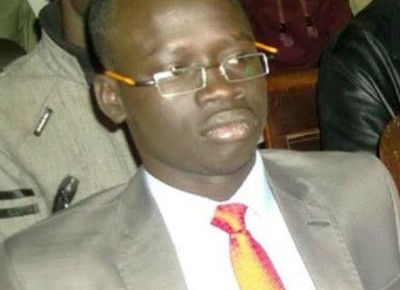 By Tor Madira Machier
By Tor Madira Machier
December 14, 2015 (SSNA) — Today, the 15 of December 2015, marks exactly two years since a state-sponsored, planned and calculated massacre against the Nuer people was executed. In a move which seemed to be a discourse for the annihilation of the Nuer people. Thousands of Nuer men, women, children and elderly people were executed and massacred pursuance to a "state policy" as reported and confirmed by the released report of the African Union Commission of Inquiry on South Sudan (AUCISS). However, it also mark a critical and a high time in the implementation of the signed Compromise Peace Agreement signed on 17 August and later on 26 the same month by Machar and Kiir respectively – an anticipated chance for the possibility of ending the two year old civil war.
But can the social fabric be enhanced? The answer needs not the ignorance of a future violence not only at the national level, but too, at the grassroots.
At the national level, the existence of a vast number of tribal council of elders, and more notably, the Jieng Council of Elders, (Which will be possibly adopted later by other tribes there by igniting another political battles between South Sudanese tribes fighting for the throne) which aim at advising political leaders on the basis of tribal scenarios make possible the anticipation of a future violence between the tribes.
The Transitional Government of National Unity due early next year should put forward a nationwide oriented policy on how the South Sudanese people should reconcile. But, there would be also a little possibility of returning to the table of love and humanity, both from the grassroots and from the national government. Old ethnic faults which were the recipe for the Juba Massacre need productive approaches to be solved. Because the more they exist, the more the country collapse based on ethnic lines. The current civil war has put in to consideration ethnic dimensions of the South Sudanese people, but we want to develop our nation, we do not have time. But inspite of this, we keep wasting that small time on wars since the inception of the Republic of South Sudan in 2011.
Some fools may think that the current civil war had harmed certain side, but it infact degraded the country as whole both economically, socially and politically. Those who were killed by President Salva Kiir and his cohorts in Juba are South Sudanese killed on the basis of ethnicity and a loss to all the people of South Sudan.
The social fabric has been destroyed. We want to revive it. And without a constructive national agenda, the social fabric is in danger.
So let this war be a reminder for us that only we say ‘never and never again’ that this beautiful Republic of South Sudan be the same again.
Tor Madira Machier is a South Sudanese columnist living in Cairo. He can be reached through [email protected].

